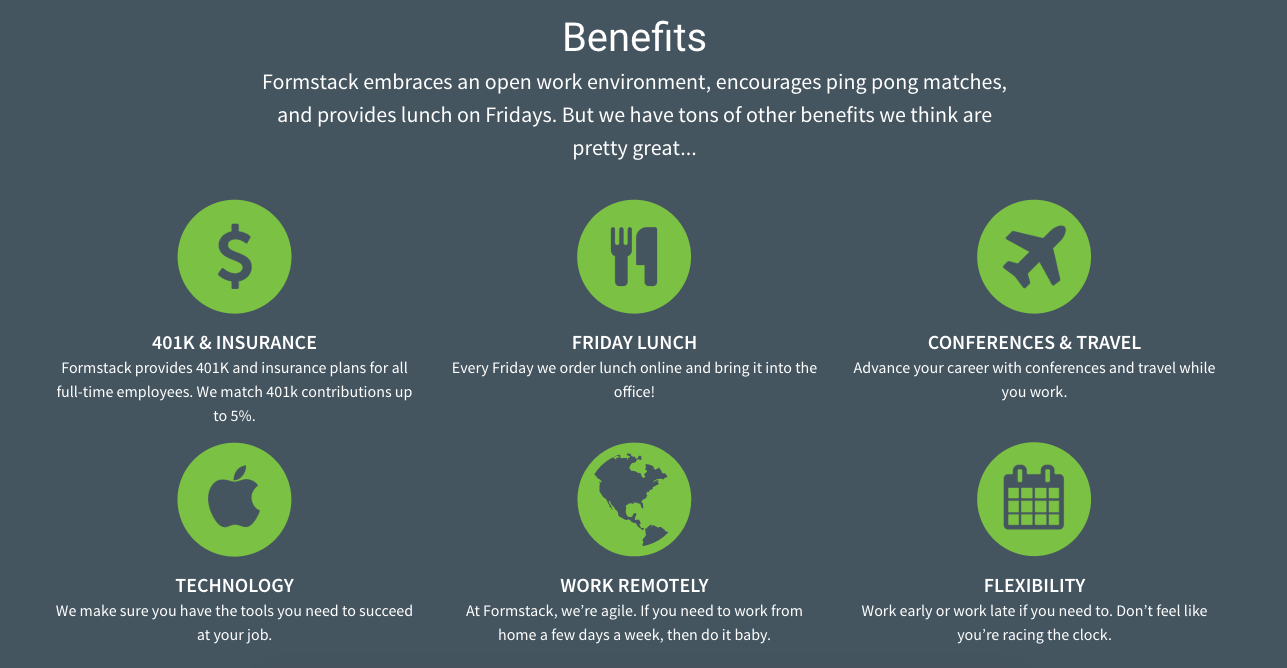When you consider marketing and human resources, you might think they are worlds apart. After all, marketers spend their time crafting campaigns to attract new business while HR professionals spend their time hiring employees and managing the company’s culture and workforce.
While these may seem like vastly different responsibilities, they actually overlap a lot more than you think. Consider this: The marketing team is charged with defining and communicating the compelling reasons a consumer should buy the company’s products or services. Similarly, the HR team is charged with defining and communicating the compelling reasons candidates and employees should work for the company. So both teams are looking to attract people to the business (and retain them as customers or employees) to aid in growth.
You see, marketers and HR professionals are actually pretty in sync when it comes to goals and desired outcomes. Don’t believe me? Here are some of the responsibilities that both departments must tackle for success:
A Clear Strategy for Company Growth
The marketing and HR teams both have a big hand in company growth. Marketers focus more on revenue growth, while HR professionals focus more on workforce growth. But both areas of growth require a clear strategy for sustained success.
For marketers, the strategy revolves around lead generation. This means figuring out a target audience and designing various content and paid campaigns to reach that desired audience. For HR professionals, the strategy revolves around talent acquisition. This means figuring out a target candidate pool and implementing various recruiting tactics to reach that desired pool.
In a way, talent acquisition strategies can mirror marketing lead generation strategies. Both are about attracting the right people (whether customers or employees) by figuring out who those right people are and where to best find and attract those people (through publicized product offerings or job openings).
Focused Branding
While “branding” is certainly more of a marketing term, it’s starting to make it’s way into the HR world. This is because brand management is no longer strictly a marketing responsibility. Marketers still preside over what is commonly thought of as company branding. But now, HR professionals are taking on the responsibility of employer branding.
Company branding involves creating the name, content, and visuals that differentiate one company from the next. It also includes the message or promise a company makes to its customers and the overall reputation a company has in the market based on consumer experience. Employer branding is similar to company branding, but it’s more about the company’s reputation with current and potential employees.
Creating a strong employer brand involves posting engaging job descriptions, providing a positive candidate experience (even if someone isn’t the right fit), and keeping current employees engaged and happy by offering competitive benefits, flexible scheduling, and the like.

Attractive and Persuasive Copywriting
Most people in business know that marketing messages only resonate if they are well-written and compelling. But what people fail consider is that the same is true for HR messages.Think about it: If you want to attract quality talent to your business, your job descriptions must sound exciting and intelligent—and that starts and ends with the copywriting. And if you want current employees to care about company initiatives and culture, your internal communications must also be clear and engaging.Whether for marketing or HR purposes, the written messages your company distributes should be outwardly focused. This means you shouldn’t spend all your time (or space) talking about what a potential employee or customer can do for your business. You should take ample time to describe what your company can do for its customers or employees (in other words, you should address their pain points).
An Active and Engaging Online Presence
In today’s digital world, developing an active and engaging online presence—through dedicated landing pages, social campaigns, blog posts, PPC ads, and more—is a key part of any successful marketing strategy. And it’s now becoming an important piece of the HR puzzle as well, particularly when it comes to building and maintaining a strong employer brand.
? Most potential employees will undoubtedly check out your company online before ever applying for a job. This means your website needs to look modern and appealing, and you’ll likely want to have a dedicated employment or careers page to show off your company’s culture, benefits, and open job postings.
Another important part of your online presence is your social media activity. Social media has become a dominant part of the online community, so your company risks appearing out of touch or stagnant if it isn’t active on major networks like LinkedIn, Twitter, Facebook, and Instagram.
LinkedIn is of particular importance for the HR team because it is specifically designed for business networking and job searching, which means it can be a key player in the social media outreach portion of a company’s talent acquisition strategy.

What to know what else marketing and HR have in common? Both teams can use Formstack to streamline processes and reach their desired goals! Click below to learn more about how each team can make use of our versatile data management platform.











